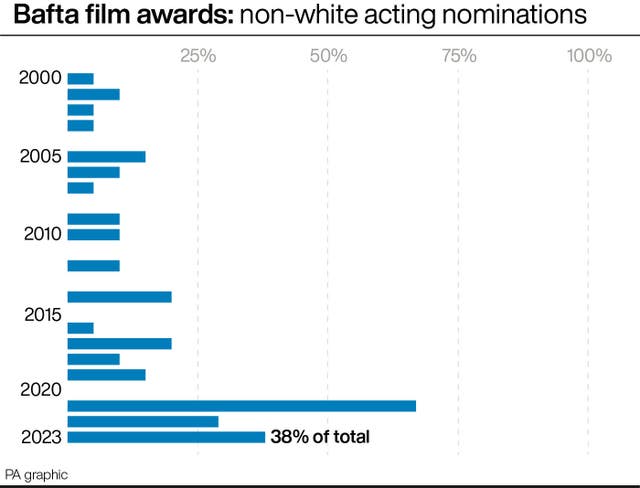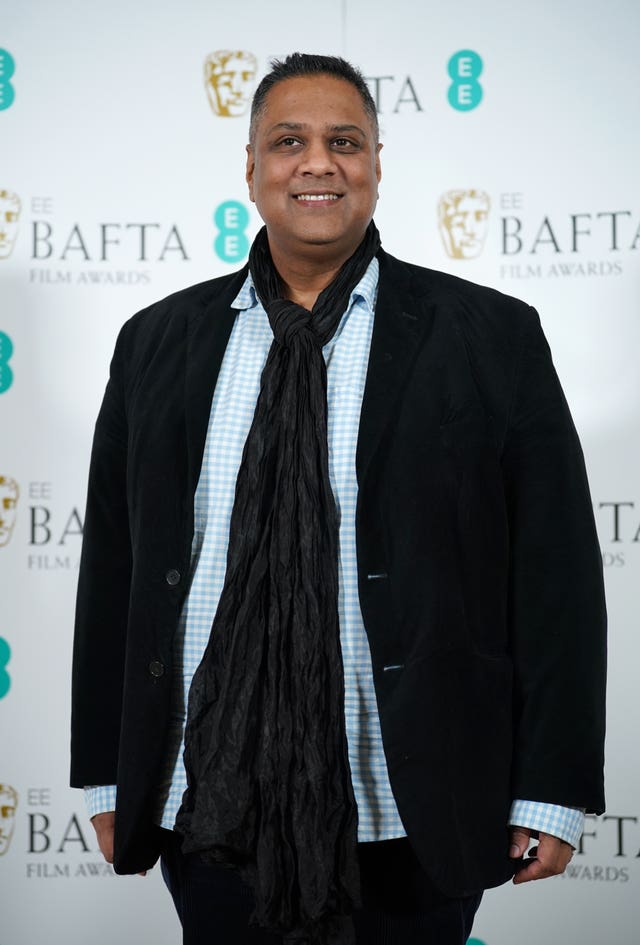Bafta chief on breadth of storytelling and representation within nominations
Nearly four in 10 of performance nominees are ethnically diverse.

The Bafta chief executive has said the “breadth of storytelling and representation” within the film nominations is a testament to the work that has gone into the selection process in the last number of years.
Jane Millichip, who took over the role from Amanda Berry, noted that nearly four in 10 (38%) of performance nominees are ethnically diverse, the second highest proportion on record.
A diverse range of nationalities is represented on the 2023 list – with nominations for actors from Australia, Cuba, Germany, Ireland, Malaysia and the Philippines, along with the UK and United States.

Reflecting on her main takeaways from the nominations list, Millichip told the PA news agency: “It’s the breadth of storytelling, the breadth of representation.
“The range of films nominated, a fantastic balance between commercial and more independent.
“I think (what’s) really exciting for us is the outstanding debut, we have six women nominated. A really strong, outstanding British film list. So we’re really thrilled.”
Among the diverse range is Netflix’s German-language anti-war epic All Quiet On The Western Front, which leads the pack this year after earning 14 nods.
Martin McDonagh’s The Banshees Of Inisherin, set on a remote island off the coast of Ireland, was also highly successful with 10 nominations and four of its Irish stars – Colin Farrell, Brendan Gleeson, Kerry Condon and Barry Keoghan – all receiving nominations in the acting categories.
Also bolstering the Irish representation to a quarter of all the 24 acting nominations are Daryl McCormack, who was nominated for Good Luck To You, and Leo Grande and Paul Mescal for Aftersun.
Millichip said: “A lot of the work that’s gone on in the last three years in the changes we’ve made in the awards process, it’s all around ensuring that the voting members see as many films as possible, and as diverse a range of films as possible.
“So now we mandate that every film voter has to watch a minimum number of films, so we can guarantee that every film entered is seen by a minimum number of voters.
“And I think that really enables our voting members to watch and consider films that don’t just reflect their personal preferences.
“So that has an impact both in the diversity of our nominations, ensuring that it’s properly representative, whether that’s underrepresented groups, ethnicity, gender.
“But I think you’re also seeing a creative diversity here, where either the mandation or the encouragement to watch as many films as possible, we’re seeing voting members surprise themselves because they are seeing films that don’t necessarily reflect their normal go to taste.”
This year the award ceremony in February will move to the Royal Festival Hall from its previous location of the Royal Albert Hall, which had hosted the award show since 2017.
It will also see actor Richard E Grant host the 76th annual film awards show while TV presenter Alison Hammond will helm the new Bafta Studio, an immersive and access-all-areas experience in the Royal Featival Hall, as part of the BBC One show.

Chair of Bafta Krishnendu Majumdar told PA he was “so excited” about the duo as he feels Grant will bring a “genuine enthusiasm” to the role and Hammond will help put the talent at ease.
He added: “I think there’ll be a real positivity and enthusiasm to the coverage and a sense of excitement, which I think is great because we want to say to the public and people: ‘These films are amazing, go and watch them’…
“And obviously, the world is going through post-pandemic, the cost-of-living crisis, I think it’s really important that we bring some of that enthusiasm and energy to the awards.”
The 2023 Baftas ceremony will be held at the Southbank Centre’s Royal Festival Hall and broadcast on BBC One and BBC iPlayer on February 19.





